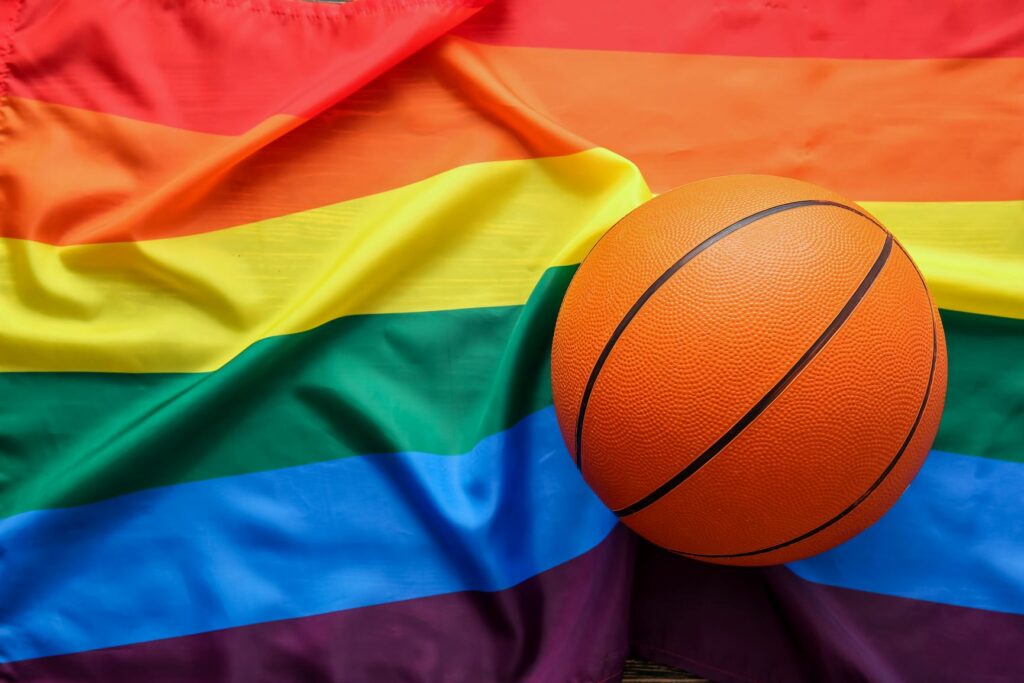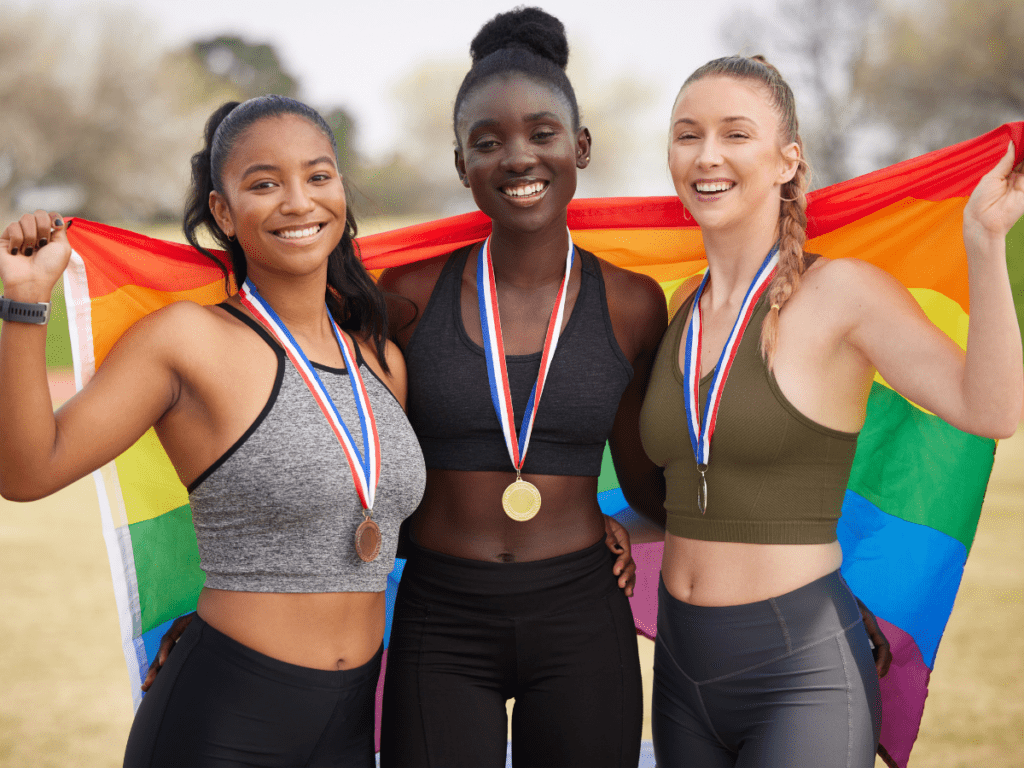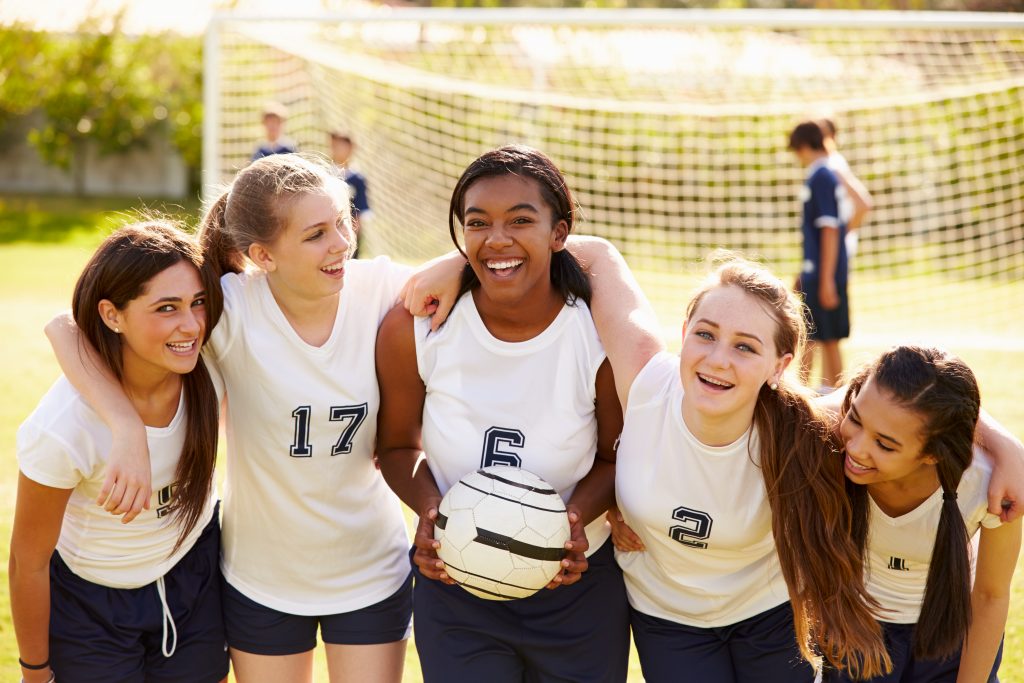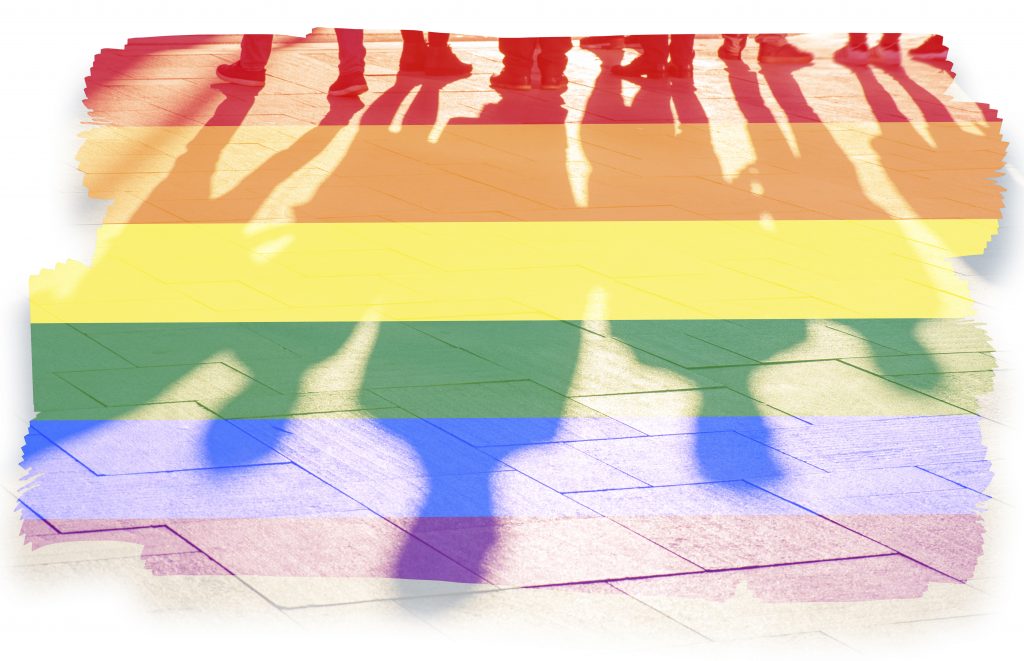The Operationalizing Intersectionality Framework
The Operationalizing Intersectionality (OI) Framework provides guidance for putting intersectional approaches into practice. Visualized as a wheel, the OI Framework identifies four points of traction: (1) Learning, (2) Harm Reduction, (3) Accountability & Transparency, and (4) Transformation. Learn about how you can apply these concepts to improve programs, policies, and spaces in the SIRC blog.
LGBTQI2S inclusion
The effects of COVID-19 are significantly impacting the physical and mental health of the LGBTQI2S community. For sport organizations, participating in LGBTQI2S inclusive training opportunities, using gender-neutral language in policies and communications, and creating sanctions for anti-LGBTQI2S behaviour are just a few ways to be more inclusive of LGBTQI2S people and communities both now and when we return…
Egale’s 2021 Guide to International Day Against Homophobia, Biphobia, Intersexism and Transphobia for Sports Organizations

Sport communities across Canada and the world have experienced a year like no other. Lockdown and isolation have left all of us eager to begin playing and training again. Now, more than ever, we understand how sport serves as a tool to bring communities together to support physical and mental health outcomes (Eime et al.,…
The role of LGBT-focused sport group involvement in reducing minority stress

Project Summary OBJECTIVES Sexual minority identity (e.g., gay, lesbian, bisexual, trans; LGBT) is largely stigmatized and stigmatization has been linked to detrimental mental and physical health outcomes. Sexual minority individuals are often motivated to conceal their identities to protect themselves from rejection but this concealment comes with the costs of anxiety about disclosure and preoccupation…
Inclusion Must Be Intentional

According to the Oxford English Dictionary, “inclusion” is the action or state of including or of being included within a group or structure. True inclusion involves authentic and empowered participation and a true sense of belonging for all participants. However, if we want to be successful with inclusion, we must intentionally plan for it –…
Egale’s Guide to International Day Against Homophobia, Transphobia and Biphobia for Sport Organizations

As Canada continues to adapt to new ways of connecting while practicing physical isolation, we must not forget the importance of days like the International Day Against Homophobia, Transphobia and Biphobia (IDAHOTB), a worldwide celebration of sexual and gender diversities marked annually on May 17th. Now, more than ever, we must be vigilant in ending…
Gender-based Violence in Sport
Coaches can play an important role in teaching athletes about healthy relationships in and through sport. The Coaching Association of Canada is leading a new project to build the capacity of coaches and other sport system stakeholders to help prevent and address gender-based and teen dating violence. To learn about the project and complete coach and athlete…
IDAHOT 2019
Like many sport organizations across Canada, the Canada Games Council (CGC) has recognized inclusion as a core value within its strategic plan, but what does that really mean in practice? To recognize International Day Against Homophobia, Transphobia and Biphobia, today’s SIRC blog focuses on how the CGC put this value into practice to ensure the…
Putting “Inclusion” into Practice for our LGBTQI2S Community
Like many sport organizations across Canada, the Canada Games Council (CGC) has recognized inclusion as a core value within its strategic plan, but what does that really mean in practice? For the CGC, inclusion includes policies, procedures and programs focused on opportunities for: Women Indigenous individuals Minority populations Individuals with physical disabilities Individuals with intellectual…
Safe sport: transgender
Research from the University of Manitoba revealed locker rooms, unfamiliar environments, and unknown sports officials can create unsafe spaces for trans athletes. The creation and enforcement of comprehensive trans inclusion policies, education about the participation of trans athletes, and efforts to eliminate transphobia, are all necessary to create a safe and inclusive sport system for…